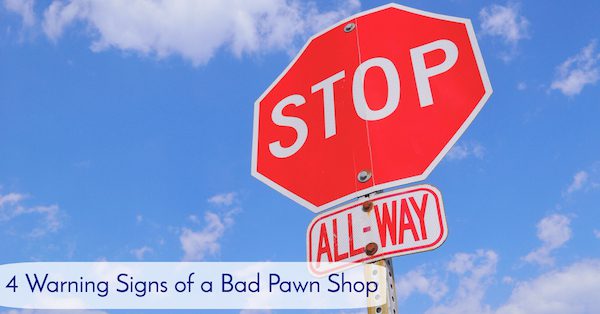Contrary to a popular-but-outdated belief, pawn shops are not interested in buying your stolen goods. A pawn shop’s long-term success relies on its repeat customers, which means its reputation can make or break its business. If you’ve read about the benefits of buying or selling through a pawn shop and want to be sure to choose a reputable pawn broker for your first (or next) deal, we have a few guidelines for you below.
4 Warning Signs of a Bad Pawn Shop
Their license isn’t current All pawn shops are regulated through their respective state governments. Ask the pawn shop to see a copy of their license at your next visit. If they refuse or show you an expired license, take your business elsewhere.
They don’t ask questions A pawn shop will ask a variety of qualifying questions to ensure that the individual selling an item is, in fact, the owner of the item. If you have tried to sell an item or overhear another individual selling an item, and the shop representative asks little to no questions, you have good reason to be concerned.
There is not a lot of variety Most reputable shops will have a wide variety of items in their store such as but not limited to: jewelry, tools, art, and electronics. If you walk into a shop that only has electronics to sell, it may be a good indicator to take your business elsewhere.
Better Business Bureau Just like you would with any other type of business you are considering doing business with, be sure to do some research before you even leave your home and look the shop up on the Better Business Bureau’s website. If you see that multiple reports have been made against the shop, don’t even bother going to the store.
The truth about stolen goods and pawn shops is that most criminals would rather sell their items online or on the streets to avoid being caught. However, as you would find in any industry, there are some bad seeds out there. Know what to look for before making your purchase and always trust your instincts.

